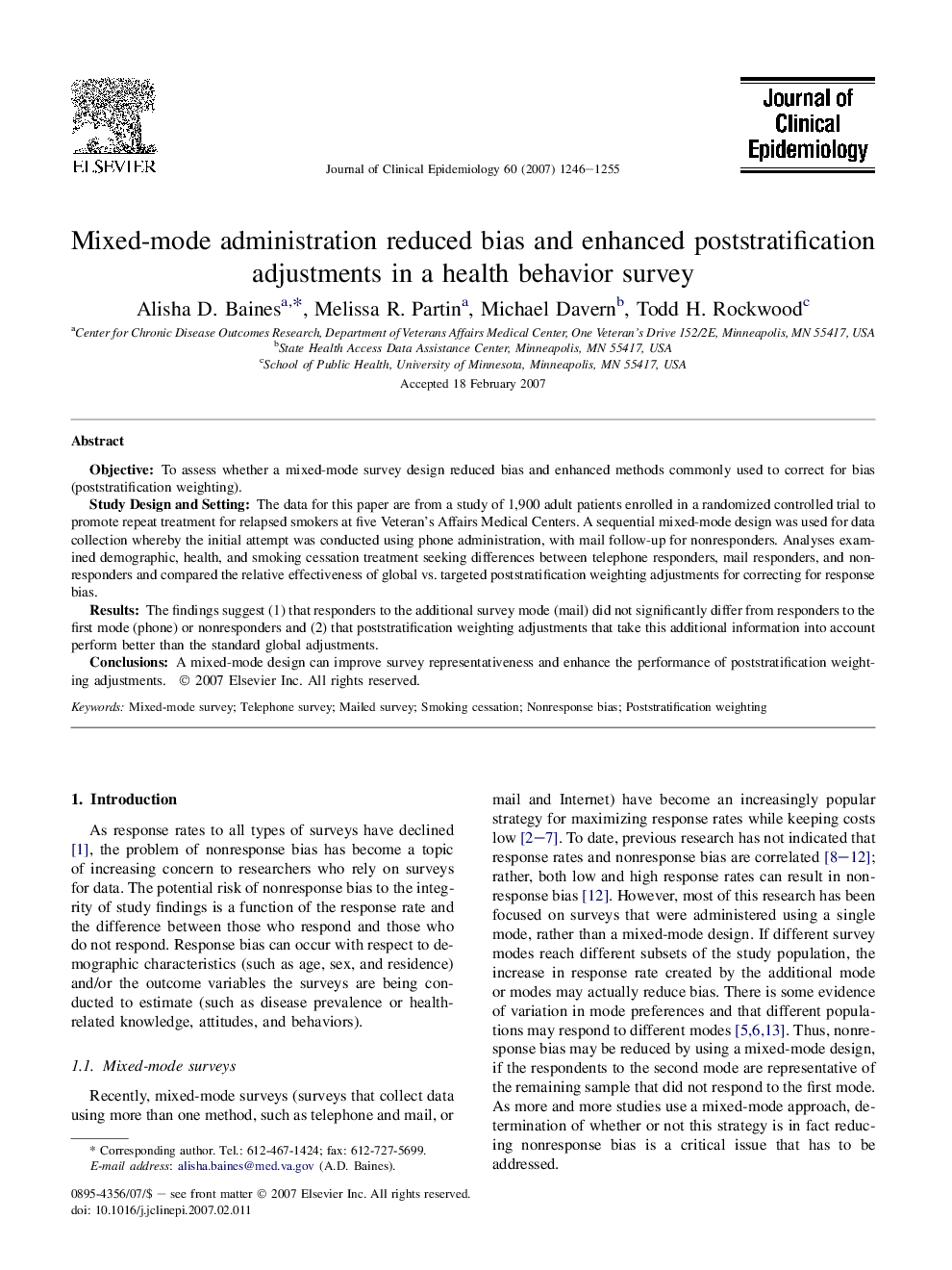| Article ID | Journal | Published Year | Pages | File Type |
|---|---|---|---|---|
| 1083058 | Journal of Clinical Epidemiology | 2007 | 10 Pages |
ObjectiveTo assess whether a mixed-mode survey design reduced bias and enhanced methods commonly used to correct for bias (poststratification weighting).Study Design and SettingThe data for this paper are from a study of 1,900 adult patients enrolled in a randomized controlled trial to promote repeat treatment for relapsed smokers at five Veteran's Affairs Medical Centers. A sequential mixed-mode design was used for data collection whereby the initial attempt was conducted using phone administration, with mail follow-up for nonresponders. Analyses examined demographic, health, and smoking cessation treatment seeking differences between telephone responders, mail responders, and nonresponders and compared the relative effectiveness of global vs. targeted poststratification weighting adjustments for correcting for response bias.ResultsThe findings suggest (1) that responders to the additional survey mode (mail) did not significantly differ from responders to the first mode (phone) or nonresponders and (2) that poststratification weighting adjustments that take this additional information into account perform better than the standard global adjustments.ConclusionsA mixed-mode design can improve survey representativeness and enhance the performance of poststratification weighting adjustments.
